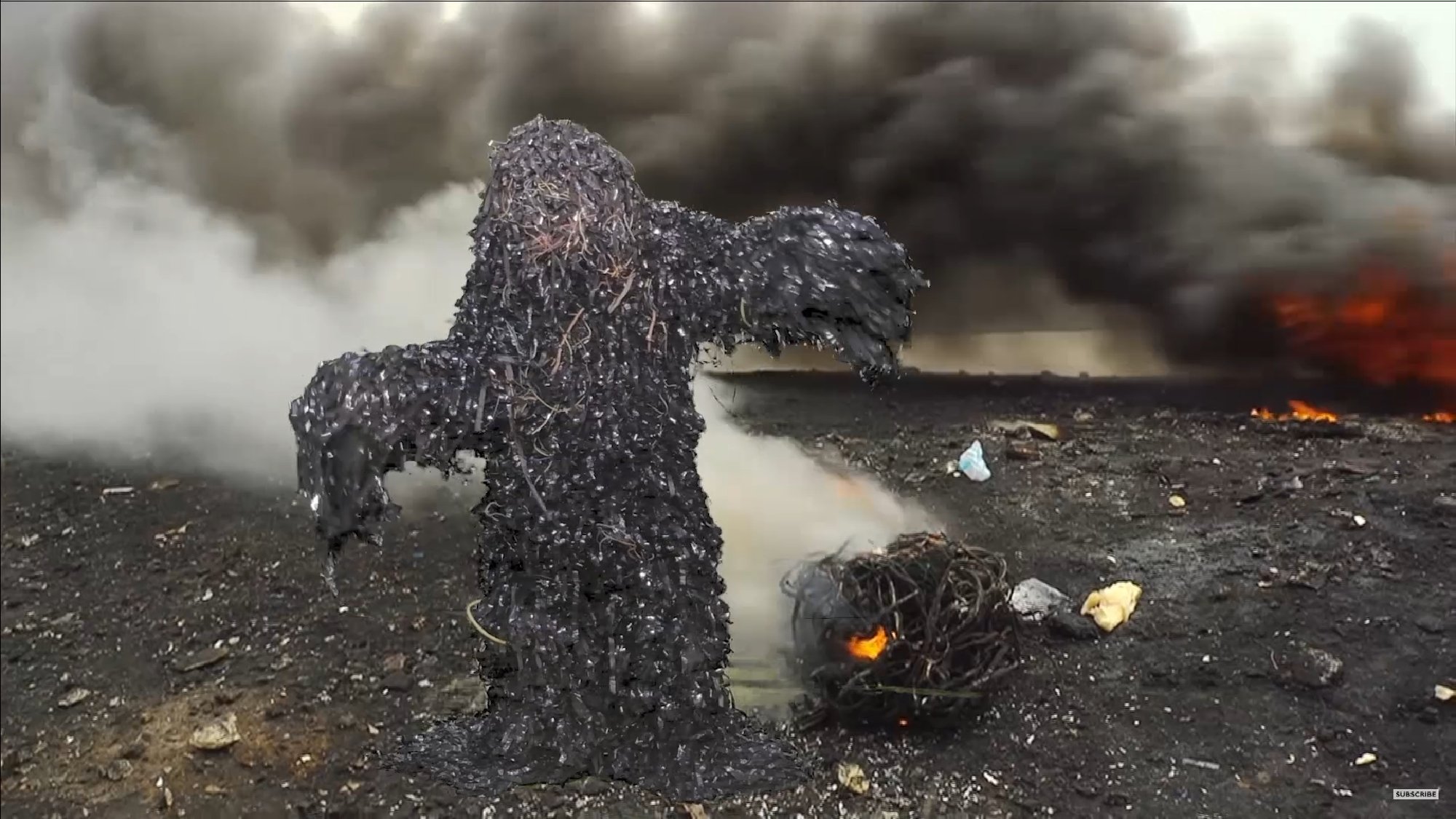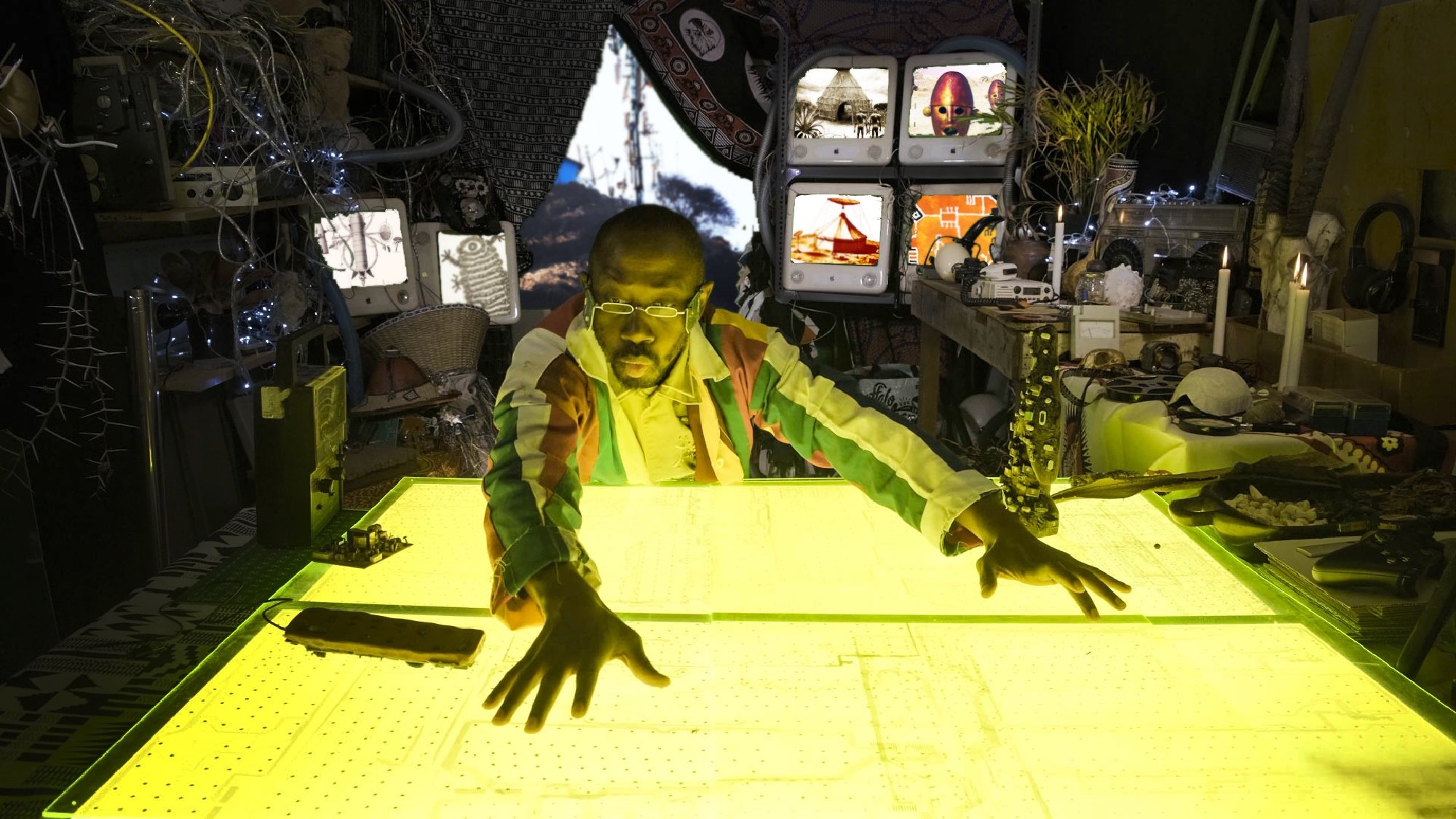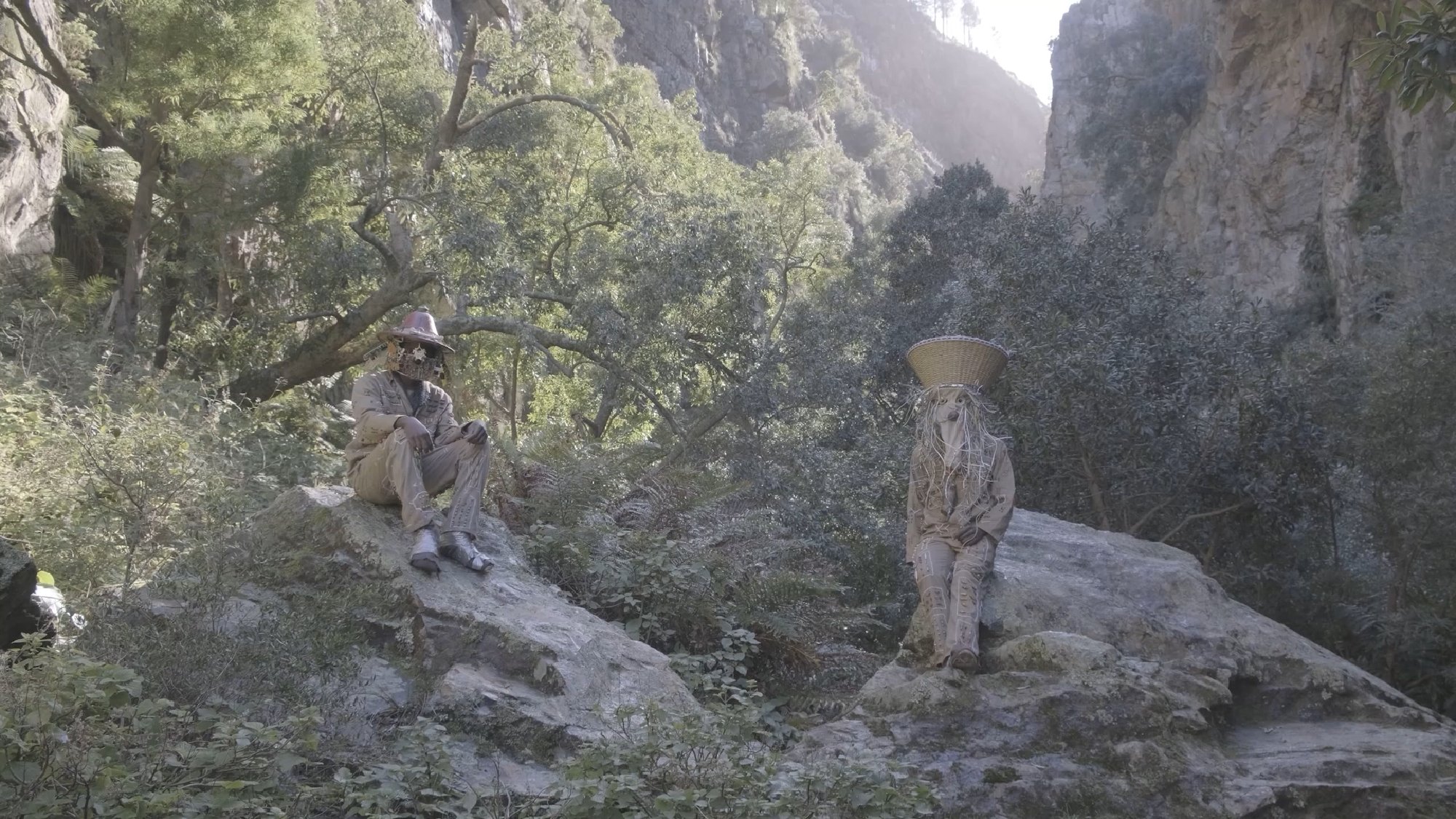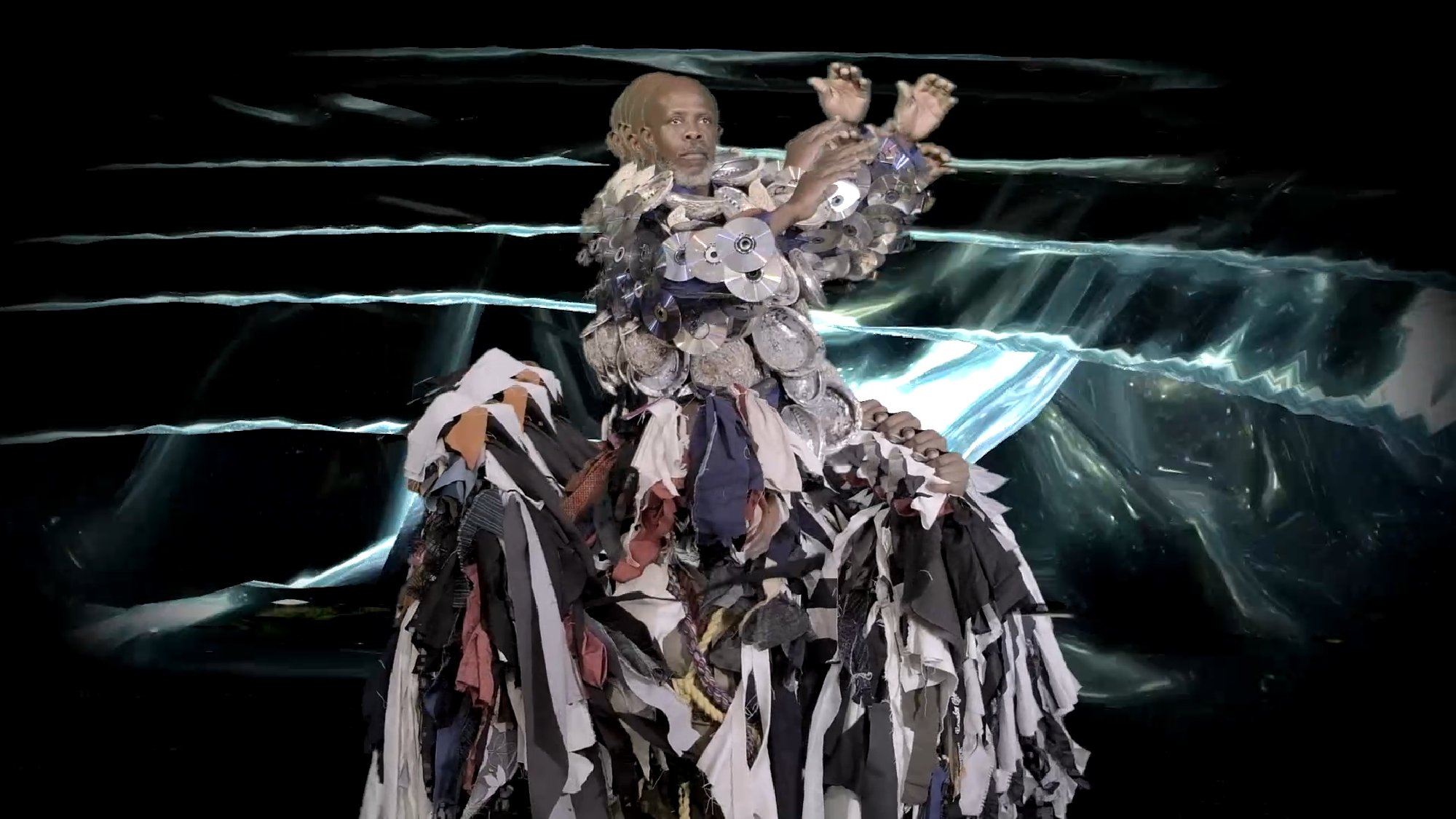Lo-Def Film Factory’s experimental sci-fi film project decolonises ideas around technology and innovation
Lo-Def Film Factory is a collaboration between South African practitioners Amy Louise Wilson and Francois Knoetze which focuses on participatory digital storytelling projects. Wilson is an actress who, having worked extensively in the film industry, became all too cognisant of the hurdles to entry for African talent. Knoetze is an artist who travelled with a backpack full of film equipment to residencies in Dakar and Tanzania, becoming increasingly focused on experimental video and the freedom afforded by the “DIY.” The two combined forces (in life, love, and work) to create Lo-Def in 2019, named after the low production value they favour when exploring local narratives. “We wanted to find ways of creating inclusive community-led storytelling that demystify the process,” says Knoetze of their practice spanning archival research, video art, collage, sculptural installation, virtual reality and emerging media.
An early endeavour was a mobile-pop up cinema in Bloemfontein where the public was invited to shoot and screen their videos on-site. The duo has since collaborated with cultural producer Russel Hlongwane on ‘Dzata: The Institute of Technological Consciousness’. The research-based project spans text, workshops, performances and a new short film supported by the Mozilla Creative Media Award 2022. It incorporates Dala A.I in portraying the reimagined history of technology in Africa told through a fantastical, sci-fi lens. This combined with found footage and an array of costumed characters results in a deeply meditative and transcendental work looking at the concept of innovation.
“What is considered ‘modern technology’ came about during the age of colonialism when Western nations were going around the world finding the most efficient ways to steal wealth, to extract,” says Knoetze, challenging the long-held presumption that Africa is a monolithic, stunted thought space while the Global North is the home of progress. “It’s only now that this buzzword of ‘sustainability’ is gaining traction but it’s not a new thing for indigenous people. These technologies were already in place. People would factor this into the way they were mining, hunting, fishing. They would look after the environment.”
In the film, unnamed figures embody African technologists from a fictional institute who have been travelling across the continent for hundreds of years to develop vernacular technologies. They carry mobile laboratories on their backs as they cross vast terrains, resisting “the glare of radiant pixels” and making “good mistakes” that far surpass the metaverse as they enter into spiritual realms of ancestral consciousness. This movement evokes migration on the continent – of invaders, traders, refugees and supernatural forces.
“It’s only now that this buzzword of ‘sustainability’ is gaining traction but it’s not a new thing for indigenous people”
Add to that the title reference to the Dzata ruin of Limpopo, which is deeply reminiscent of the architectural style of Great Zimbabwe. If this ruin stands as evidence of ancient technological advancement, then there goes the assumption of innovation being “a white man’s Houdini act” – a phrase coined by renowned Zimbabwean academic and MIT professor Chakanetsa Mavhunga who mentored Lo-Def on the project. As Wilson explains, “Innovation is a long chain of knowledge passed on and built upon. A lot of that knowledge chain is indigenous knowledge.”
Actor and musician Babalwa Makwetu narrates the video to an original soundtrack provided by dumama+kechou. As figures are building amorphous shapes from wires and traversing landscape, voice and music serve as guiding forces on a journey of reconstruction. The images glitch and transform into spaghetti-monsters: giant sculptures made from redundant hardware. “Much of global connectivity depends on African raw materials yet Africa is used as the dumping site of e-waste from Europe and the U.S,” Knoetze points out of the environmental devastation caused by tech over-consumption.
During their research, Lo-Def led a workshop which involved bringing e-waste to a school in Gugulethu, a township in the Western Cape. Children were asked to create something their community would need. The responses were poetic: a “de-escalation machine”, shouting at people to stop fighting, a “lion computer”, hardy and lasting. It’s this type of creative thinking that Wilson believes will show us the way forward. “A decolonial approach to technology can mean you invent, or you alter and refract to make them fit and adapt to your context.”
Dzata now goes beyond film into live performance. Its most recent destination has been the Control_Shift festival in Bristol, UK, and this is just the first chapter. Lo-Def’s next expansive project will be looking at the history and future of space, so watch this .





